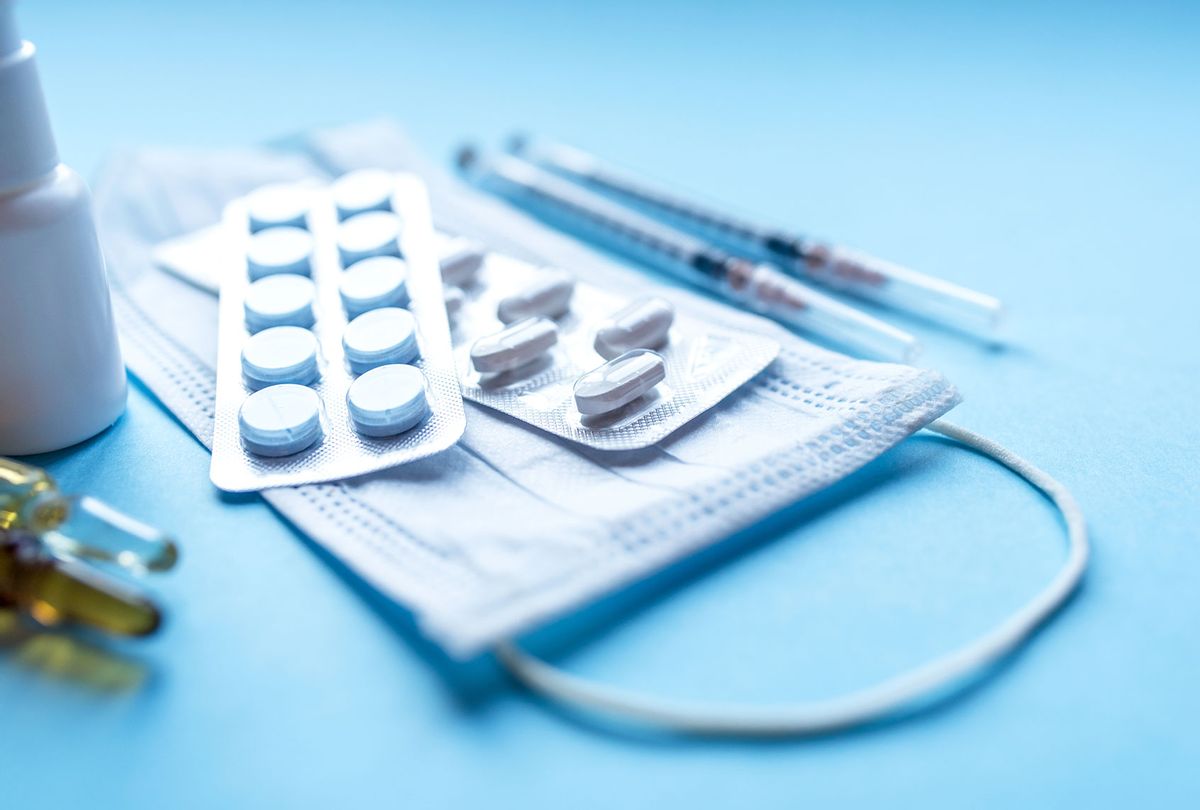Barbara Legere's son was an opiate addict for more than a dozen years. Five months into the pandemic, he tragically took his own life.
Legere thinks it wasn't a coincidence.
"I do believe that the pandemic played into his loneliness," she told Salon by email. "His only interactions were with me and his drug dealers."
Since then, Legere has written about her experiences and is penning a book about her son. Legere believes that the isolation of the pandemic made his addiction worse.
"He started using not only more often, but more heroin," Legere said. "He spent most of his time in his room — he lived with me because I don't believe in tough love. When he did come out of his room to hang out with me or watch TV he would nod off sometimes for hours. It was like he couldn't stand being conscious or showing up for life. He had few friends and now he wasn't connecting with anyone except his drug dealer."
The stress of the virus was an added strain on him. "He was also very paranoid about getting COVID," Legere said. "He was exposed to it early in the pandemic and tested negative but worried constantly about it, even though he rarely left the house."
According to the American Medical Association, drug overdose deaths skyrocketed during the pandemic. Total overdose deaths may have reached as high as 90,000 in 2020, setting a new record. Experts say that the destabilizing effect of the pandemic exacerbated America's drug addiction problem, as sobriety generally requires a consistent social environment — something that the pandemic undid.
Interestingly, some of those in recovery say that the destabilizing effect of the pandemic was a trigger to get clean. Years before the pandemic, Chelsea Cressman had used heroin while pregnant — and she was determined not to do that again.
Cressman, who was molested as a child and felt socially isolated, had turned to drugs for consolation at a young age. By the time she was pregnant, the addiction seemed to control her, rendering it extremely difficult to make choices in her own best interest and those of her loved ones. She is not proud of using heroin while pregnant; as she explained, she had yet to learn to put sobriety first in her life. In prison, she says, she was repeatedly harassed and assaulted by other inmates and even guards, some of whom called her a "monster." She felt awful about herself. Sometimes she wanted to die.
Then she was pregnant again — and this time, she vowed, it would be different. Despite briefly relapsing after the pregnancy, she would ultimately get back on the path to sobriety. She celebrates one year of staying clean next month.
The onset of a global pandemic, though a surprise, wasn't necessarily a negative factor.
"A lot of people were very sketchy about hanging out because you didn't know who they came in contact with," Chelsea told Salon, noting that she would often use drugs when socializing. "It was just easier for me to not really hit people up and be like, 'Hey, we're hanging out so I can get high.'"
The opioid addiction crisis is currently the main driver of drug overdose deaths in North America. Dr. S. Monty Ghosh, who studies addiction medicine among other things at the University of Alberta, said he has observed the opioid epidemic up close in Canada.
"We've seen a huge spike in western Canada, specifically with deaths, because of poisoning," Ghosh explained. Ghosh says the Chinese government has tamped down on exporting fentanyl; that, along with new border and shipping regulations, means that drug dealers have turned to other substances besides fentanyl that are being used to dilute drugs.
"With the new benzodiazipines being mixed in with the fentanyl, we're seeing it is a lot harder to reverse overdoses," Ghosh told Salon. "So when we're trying to reverse an overdose, it's harder to do because they're not responsive."
Street drugs are partly to blame. Dr. Jaydeep Tripathy, a primary care physician at Doctor Spring, told Salon that he has noticed "an alarming surge" in opioid overdoses. "This can be traced to the fentanyl-laced street drugs, which are now more accessible," he said. "Because of the pandemic, many people with drug abuse problems fail to get the medical attention they need," he lamented.
Cressman, then, is one of the lucky ones. As she navigates sobriety, Cressman says she is staying focused on being the best mother she can be, which means staying on top of her addiction. As she explained, she went to a program "where I could learn to be sober while being a parent."
Want more health and science stories in your inbox? Subscribe to Salon's weekly newsletter The Vulgar Scientist.



Shares